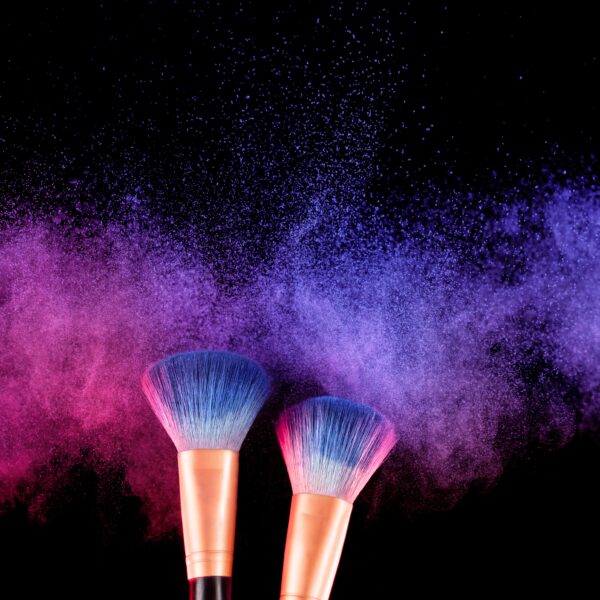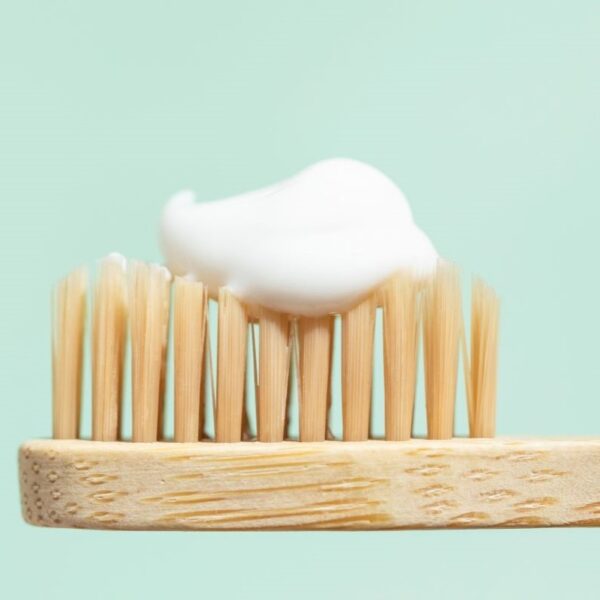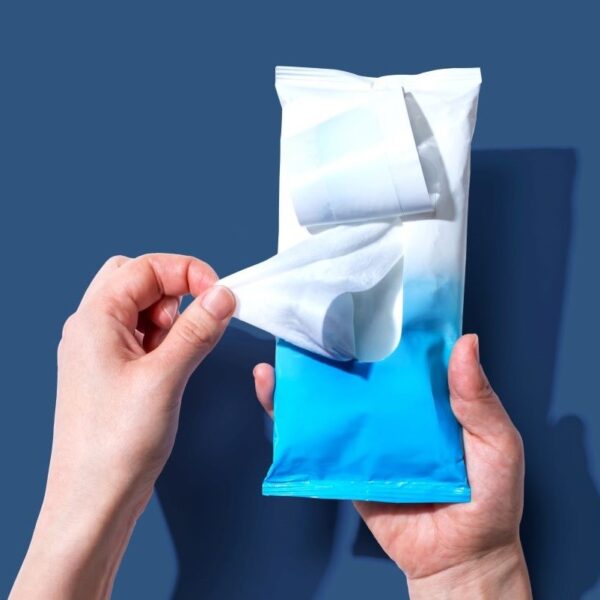Aluminum sesquichlorohydrate is an inorganic compound used as an active ingredient in some deodorants and antiperspirants.
Its chemical formula is AlCl3·3H2O. It is a white, crystalline solid that is soluble in water. It is used as a deodorizer and an antimicrobial agent, helping to inhibit the growth of bacteria. Aluminum sesquichlorohydrate (ASH) is an astringent, antiperspirant ingredient commonly used in body care products, especially deodorants.
What is Aluminum Sesquichlorohydrate?
Aluminum sesquichlorohydrate consists of the complex basic aluminum chloride that is polymeric and loosely hydrated. It encompasses a range of aluminum-to-chloride atomic ratios between 1.26:1 and 1.90:1. It contains not less than 90.0 percent and not more than 110.0 percent of the labeled amount of anhydrous aluminum sesquichlorohydrate.
How is Aluminum Sesquichlorohydrate Produced?
Aluminum sesquichlorohydrate is synthesized by reacting aluminum sulfate and hydrochloric acid in an aqueous solution, producing aluminum hydroxide and hydrogen chloride. The aluminum hydroxide is then reacted with a chlorine-containing compound such as sodium chloride, calcium chloride, or magnesium chloride. This reaction produces aluminum sesquichlorohydrate. The reaction is typically executed at temperatures around 100-150°C and a pH of about 9.
Aluminum Chloride Vs. Aluminum Sesquichlorohydrate
Aluminum chloride is one of the most potent antiperspirant ingredients found in over-the-counter and prescription antiperspirant products. It is the preferred ingredient for extreme sweating because it is a smaller molecule than other aluminum compounds and can penetrate the sweat duct more effectively.
Aluminum sesquichlorohydrate, on the other hand, is gentler on sensitive skin than aluminum chloride and is found in some of the newest antiperspirants designed to cause less irritation. This ingredient is not as potent as aluminum chloride but still effective and can last for days.
Use of Aluminum Sesquichlorohydrate in Personal Care Products
ASH is an aluminum-based compound used as an antiperspirant and deodorant agent. It works by plugging the sweat glands into the underarm area, which reduces the amount of sweat produced. ASH is known for providing long-lasting protection against sweat and odor.
These properties are essential in antiperspirants, whose primary function is to prevent excessive sweating. ASH is effective at lower concentrations than other aluminum-based compounds, which means it can be used in lower concentrations, making it a cost-effective choice for product developers.
Another benefit of ASH is its compatibility with other ingredients commonly used in body care products. ASH is soluble in water and ethanol, which makes it easy to incorporate into formulations. It can also be combined with other antiperspirant agents, such as aluminum zirconium tetrachlorohydrex glycine.
Applications in Personal Care Products
The following table outlines some of the functions of aluminum sesquichlorohydrate in body care products:
| Function | Applications |
| Astringent | Aluminum sesquichlorohydrate helps tighten the pores and refresh the skin |
| Antiperspirant | Aluminum sesquichlorohydrate is an antiperspirant used to reduce sweating. It physically blocks eccrine sweat glands, giving it a wide application in antiperspirants. Antiperspirants reversibly block sweat gland excretion by forming a temporary, gelatinous plug in the eccrine duct that reduces but does not stop, the flow of axillary perspiration. These blockages prevent sweat from reaching the skin surface in the axilla. They can remain within the sweat duct for 7–14 days, depending on the rate of skin desquamation, the user’s hygiene regimen, activity type, and quality. |
| Deodorant | Aluminum sesquichlorohydrate reduces body odor by forming a strong chemical bond with the proteins and fatty acids that cause odor. This bond blocks the proteins and fatty acids from releasing odors, which helps to reduce body odor. Aluminum sesquichlorohydrate reduces or eliminates the unpleasant odor and protects against the formation of such odor on the skin. |
| Antimicrobial | Antimicrobials are commonly used in today’s deodorants to prevent underarm odor formation by inhibiting or deactivating the bacteria responsible for bad odor formation. Aluminum sesquichlorohydrate helps control the growth of bacteria that can cause underarm odor. Aluminum sesquichlorohydrate helps to reduce the growth of bacteria, which is one of the leading causes of body odor. Creating an environment that is hostile to the bacteria helps reduce the amount of bacteria growth and, therefore, the amount of odor. |
Product Examples
The following table includes examples of products that have aluminum sesquichlorohydrate:
| Type | Examples |
| Emulsion and clear roll-ons products | Deodorants, Antiperspirants |
| Pump sprays | Aerosols, Body Sprays |
| Other Products | Aqueous Creams and Clear Gels |
Properties of Aluminum Sesquichlorohydrate
| Appearance @ 25 °C | Clear, colorless to slightly yellow liquid |
| Physical Form | White powder |
| pH | 3-5 |
| Molar Mass | 97.46 g/mol |
| Solubility | Water soluble, Freely soluble in Alcohol |
| Odor | Characteristic |
| Shelf Life | 24-36 months |
| Storage Temperature & Conditions | Store in its original package, away from sunlight, tightly sealed in a dry, ventilated space. Exposure to moisture may cause caking. The temperature for storing aluminum sesquichlorohydrate should be between 15-25°C (59-77°F). |
Typical Formulations
Transparent Antiperspirant Roll-On
This formulation is for an alcohol-free transparent antiperspirant roll-on product with antiperspirant and deodorant properties. It has an approximate pH of 3.9 and offers protection against heat, sport, and stress.
Here is an example of a transparent antiperspirant roll-on formulation table with aluminum sesquichlorohydrate along with the % weight of ingredients:
| INCI NAME | Trade Name | % Wt. |
| PEG-7 Glyceryl Cocoate | EMANON HE | 20.00 |
| Cetyl Ethylhexanoate | EXCEPARL HO | 3.2 |
| Polysorbate-20 | KAOPAN TW-L-120 | 1.0 |
| Isopropyl Myristate | Waglinol 6014 | 1.0 |
| Aluminium Sesquichlorohydrate (50% solution) | Reach 301L | 40.00 |
| Dimethicone Copolyol | Abil B 88183 | 5.00 |
| Dipropylene glycol | – | 3.0 |
| PEG-150 | – | 1.0 |
| Benzyl Alcohol | – | 0.1 |
| Deionized Water | – | Up to 100% |
Source: Kao Chemicals
Formulation Procedure
- Mix Aluminium Sesquichlorohydrate and water until complete homogenization.
- Slowly add Dipropylene glycol, EMANON HE, Dimethicone Copolyol, EXCEPARL HO, KAOPAN TW-L-120, Isopropyl Myristate, PEG-150, and benzyl alcohol.
- Stir well after each addition until a homogeneous dispersion is obtained.
- Adjust pH.
Aluminum Sesquichlorohydrate Formulation Considerations
The following table provides detailed considerations for working with aluminum sesquichlorohydrate in formulations:
| Preparation | Premix the aluminium sesquichlorohydrate in water before starting with the overall formulation. Avoid forming lumps. |
| Alcohol-Solubilizing Adjuncts | Aluminum sesquichlorohydrate can be complexed with polyethylene glycol or propylene glycol as alcohol-solubilizing adjuncts in antiperspirants. |
| Things to Avoid | Avoid anionic surfactants, self-emulsifying grades of emulsifier, and strong bases along with it |
| Recommended pH | Final product should be 3.5- 4.5 |
| Maximum Usage | It can be included up to 25% maximum in over-the-counter hygiene products as an active antiperspirant agent. |
| Other Considerations | Can be used in all product forms. |
| Recommended Usage Concentration in different products | Non-spray Deodorants or non-spray antiperspirants- Up to 6.25%Spray deodorants or spray antiperspirants- Up to 10.60% |
Aluminum Sesquichlorohydrate Safety & Regulatory Concerns
The following table details regulations that apply to the use of aluminum sesquichlorohydrate in formulations:
| FDA Information | The FDA considers aluminium sesquichlorohydrate in antiperspirants safe and has approved using these ingredients in Over-The-Counter (OTC) antiperspirant drug products in a permitted concentration of up to 25%. |
| EU Information | The maximum concentration of aluminum sesquichlorohydrate to be used according to the EU Regulation 1223/2009 is 20%. This concentration is considered safe for human use and must be included on the product label. |
| Other Regulatory Information | Use is restricted in Canadian cosmetics |
| Cosmetic Ingredient Review (CIR) Information | The Cosmetic Ingredient Review (CIR) has deferred evaluation of these ingredients because the FDA has assessed their safety. This deferral of review is according to the provisions of the CIR Procedures. |
Health Effects of Aluminum Sesquichlorohydrate
One concern with aluminum-based compounds is their potential to cause skin irritation or allergic reactions. While ASH is considered safe for body care products, product developers should conduct patch tests and monitor for adverse reactions. There are also concerns about the potential health effects of aluminum exposure. While studies have not shown a clear link between using aluminum-based antiperspirants and health problems, some consumers may hesitate to use aluminum products. Product developers may consider offering aluminum-free options for consumers who prefer to avoid the ingredient.
Identification Numbers
| CAS Number | 11089-92-2 |
| EC Number | 234-310-4 |
Fun Facts About Aluminum Sesquichlorohydrate
- ASH was first developed in the 1960s and has been used in body care products since the 1970s.
- ASH is a relatively mild antiperspirant compared to other aluminum-based compounds, making it a popular choice for people with sensitive skin.
- ASH is often combined with other antiperspirant agents, such as Aluminum Zirconium Tetrachlorohydrex glycine, to enhance its sweat and odor protection.
- SH is just one of many aluminum-based compounds used in body care products. Other common compounds include aluminum zirconium tetrachlorohydrex glycine, aluminum chloride, and aluminum hydroxy bromide.
Additional Sources & Resources
- PubChem – Aluminum Sesquichlorohydrate
- United States Pharmacopeia – Aluminum Sesquichlorohydrate
- SCCS – Opinion on the safety of the use of aluminium in cosmetic products
- Scientific Reports – Real time observation of the interaction between Aluminium salts and sweat under microfluidic conditions
- EUR-Lex – Regulation (EC) No 1223/2009 of the European Parliament and of the Council of 30 November 2009 on cosmetic products







